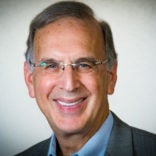WASHINGTON, Aug. 20 (JTA) The changing agenda of the Jewish community is increasingly well-documented. For the better part of the postwar period, the Jewish community focused its communal energies and resources on an ethnic/survivalist agenda.
But the ethnic/survivalist agenda, which stirred the passions of an entire era of American Jews, no longer excites younger members of the community. Raised in relative affluence with few international Jewish needs demanding their attention, younger Jews have turned inward.
Everywhere the evidence abounds that the ethnic/survivalist agenda is being replaced by a personal/spiritual agenda.
Many will weigh in about whether this is good or bad. The truth is, it is a mixed blessing.
The Jewish community has ignored the spiritual dimensions of Judaism for far too long, and we are paying a heavy price for it in terms of the number of younger Jews who have abandoned the Jewish community for a host of spiritual alternatives. At the same time, no responsible representation of Judaism can exclude a healthy dose of communal solidarity and public responsibility perspectives that are woefully absent from the promoters of the “new Jewish spirituality.”
With that said, there is ample cause for concern that the Jewish community is not reading the signals of this changing agenda quickly enough.
In his 1993 book, “A Generation of Seekers,” Wade Clark Roof noted that the boomer generation of Americans, as they enter middle age, have little loyalty to their birth religion. Their search for “post-materialistic” values about meaning and the purpose of life generally leaves them disillusioned with the traditional churches and synagogues of their youth, which are long on doctrine, liturgy and hierarchy, and short on personal engagement.
The greatest beneficiaries of the spiritual wanderlust of the boomer generation are a wide array of spiritual retreat centers, ashrams of Eastern religious traditions and new age-inspired self-help groups. Among the most avid consumers of these new spiritual alternatives are Jews.
The emerging interest in revitalizing the American synagogue comes not a moment too soon. By any measure, there is a religious boom going on in America. The question is whether synagogues can read the generational preferences well enough to capitalize on this boom. Among these preferences are inclusivity, empowerment and engagement.
Inclusivity implies a need for the synagogue to recognize that the two-parent family with children is only one of many family configurations in the community today and that other family configurations are deserving of equal programmatic attention.
Empowerment suggests an approach to Judaism that radically democratizes synagogue life, giving laypeople the tools to function as rabbis and cantors. Engagement requires a serious approach to the study of the tradition and provides an opportunity for lay Jews to enter into the centuries-old exercise of text wrestling to discover what Torah has to say about the way we live our lives.
The synagogue-centers of the American Jewish community do not come by these traits naturally or easily. The synagogue-center was created for the first generation of American Jews who entered suburbia. Synagogue-centers were characterized by large edifices, clergy in robes, services with choirs and rehearsed staging and a program that supported the ethnic agenda of the community.
Though most synagogue-centers have made modifications from these institutional styles, inclusivity, empowerment and engagement are not their forte. The havurah movement and Jewish renewal have been important outlets for just such expressions of Jewish life and practice.
The challenge for the century that we are now entering is to mainstream much of this style. It calls for a change in the paradigm from synagogue-center to synagogue-community. In my new study of American synagogues, I identified four characteristics of the synagogue-community that are beginning to transform the synagogue as we know it:
Articulation of Mission: Fewer and fewer Jews know why it is worth the time and expense to pursue Jewish affiliation. Synagogues need to engage their members in a process of creating a covenant one that elevates the purpose of the institution and does not shrink from making demands on members.
Organizational Culture: When lay Jews are given a chance to lead services, deliver talks, read Torah, introduce new music, etc., what is (sometimes) sacrificed in professional quality is more than made up for in the sense of ownership that gets created. Synagogues need to find more ways to tap into that energy.
Spiritual Leadership: The deepest truth people know is their inner story, not Torah. Rabbis increasingly need to invite Jews to tell their stories, their spiritual journeys, and then to put those experiences into the context of Jewish wisdom and tradition. It is the way that seekers come to realize that Judaism offers a portal to greater meaning. It is a portal that thousands are ready to walk through, if properly guided.
Framing of Serious Judaism: Synagogues must be, primarily, places that Jews attend to study classical texts, engage in social justice activity and extend themselves in acts of mercy and compassion. Let worship services allow for alternate expressions of spirituality through meditation, music and movement so that we invest our ancient liturgy with newfound kavanah, or intention. Let the halls of the sanctuary reverberate with a multitude of voices of joy and of anguish, of faith and of doubt.
These are the characteristics of synagogue communities that will inspire a new generation of Jews to join their ranks. They will also be the kind of communities that will lead the way to a renaissance of Jewish life.
Rabbi Sidney Schwarz is the founder and president of The Washington Institute for Jewish Leadership and Values, an organization dedicated to the renewal of American Jewish life through the integration of Judaic study, social justice and civic engagement. He is the founding rabbi of Adat Shalom Reconstructionist Congregation in Rockville, Md,. and the author of “Finding a Spiritual Home: How a New Generation of Jews Can Transform the American Synagogue” (Jossey-Bass, 2000).
JTA has documented Jewish history in real-time for over a century. Keep our journalism strong by joining us in supporting independent, award-winning reporting.






